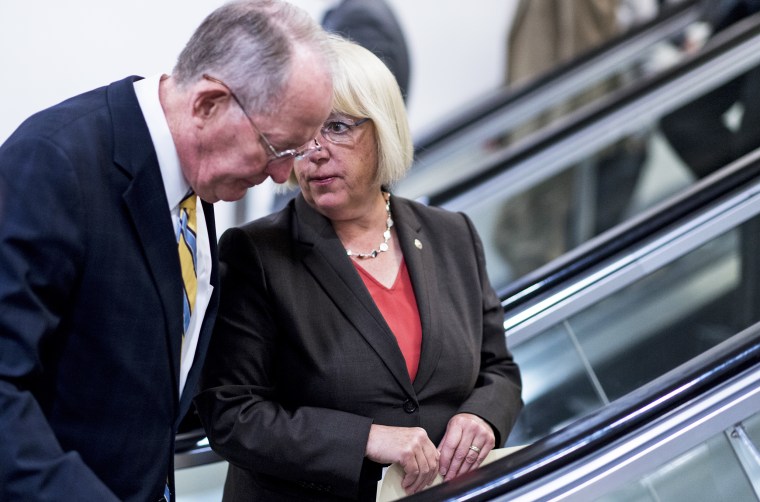WASHINGTON — A bipartisan health care bill to stabilize Obamacare markets would reduce the deficit, according to a new report by the Congressional Budget Office.
The finding gives the GOP sponsors of the bill, known as Alexander-Murray, a boost in their effort to convince President Trump that signing it would not be a "bailout" for insurers.
"Not only does it not cost anything, it saves taxpayers money," Sen. Lamar Alexander, R-Tenn., one of the sponsors, said in a floor speech.
The bill, which was negotiated by Alexander and Sen. Patty Murray, D-Wash., would reinstate cost-sharing reduction (CSR) payments owed to insurers for lowering deductibles that Trump cut off this month, citing concerns about their legality, for the next two years. It would also allow more customers to purchase a cheaper high-deductible plan and make some small changes in the way states can apply for federal waivers to tweak their health care system.
According to the CBO, the bill would save $3.8 billion over the next decade. Alexander noted that some of the savings would come from rebates paid out by insurers, which are designed to prevent companies from using the CSR payments to boost profits rather than pass on the benefits to customers.
Trump, who has sent mixed signals on the bill itself while praising Alexander for his work, has named potential insurer profits as his top concern.
A dozen Republicans and a dozen Democrats are sponsoring the measure, and it's likely the bill could pass with over 60 votes. GOP leaders are unlikely to bring it up for a vote without Trump’s explicit support, however.
Sen. Orrin Hatch, R-Utah, and Rep. Kevin Brady, R-Texas, put forward a rival bill this week that would fund CSR payments, but includes demands, like ending Obamacare’s individual mandate, that make it unlikely to garner any Democratic support. House Speaker Paul Ryan said at a Reuters event on Wednesday that their bill "reflects our thinking in the House much more closely."
Insurers have already signed contracts to offer plans with significantly higher premiums in 2018 in response to the White House’s ambiguity on CSR payments, meaning Alexander-Murray would not affect rates until 2019.
The CBO previously found that ending CSR payments permanently would increase deficits by $194 billion over a decade, since insurers would raise premiums for Obamacare exchange plans by 20 percent in response and the government would have to spend more on subsidies to help customers pay them. The savings are lower in the new Alexander-Murray score largely because it uses a baseline that assumes the CSR payments will be made.

